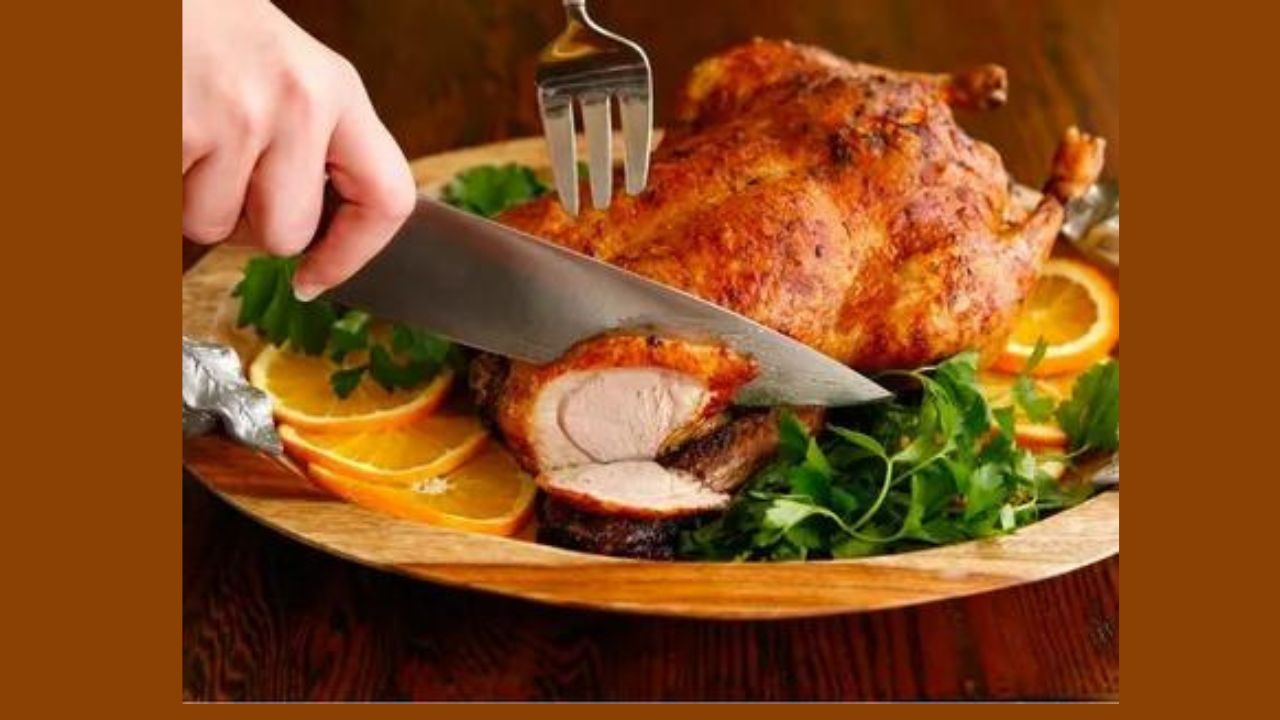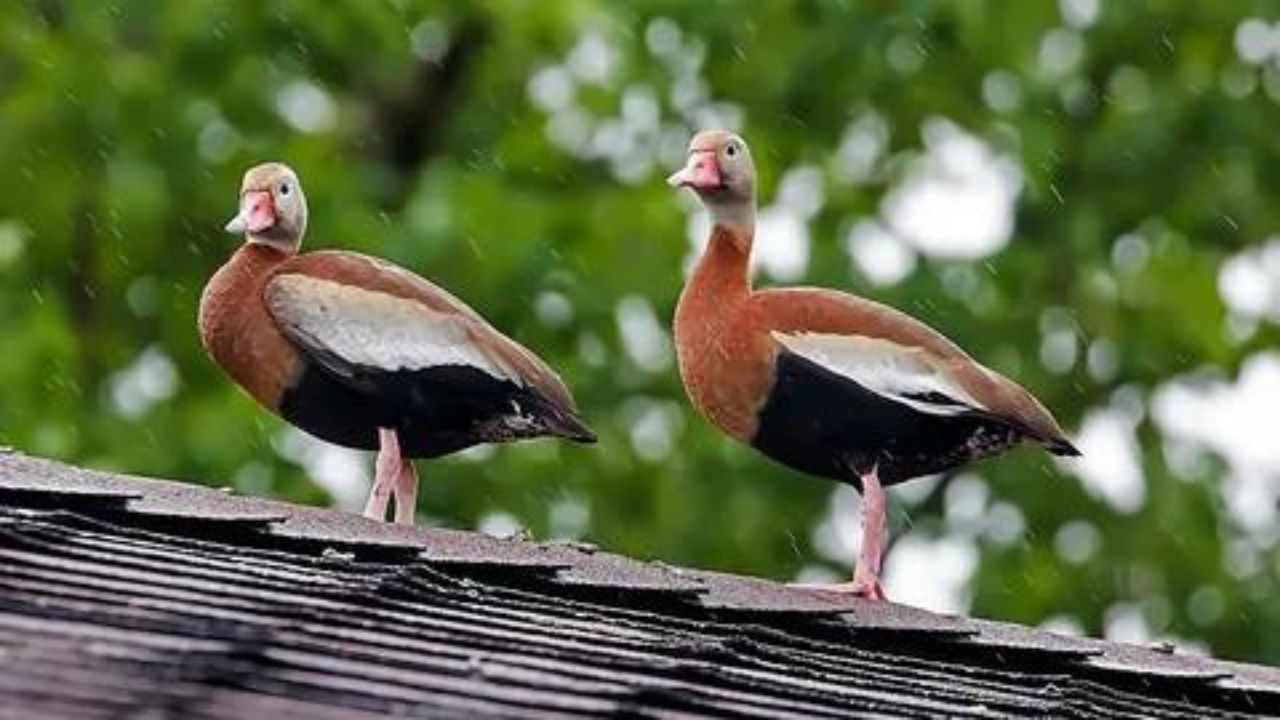The black-bellied whistling duck stands out with its distinctive appearance and unique vocalizations. As hunters contemplate pursuing these waterfowl, a common question arises: are black-bellied whistling ducks good to eat? Proper cooking methods can improve their palatability, but personal preferences vary.
The Black-Bellied Whistling Duck Overview
Before delving into their culinary qualities, let’s understand the black-bellied whistling duck. Gaining a comprehensive overview of their physical characteristics and habitat preferences sets the stage for evaluating their potential as a culinary delight.
Black-bellied whistling ducks stand out with their striking appearance and distinctive vocalizations. These medium-sized ducks boast a chestnut-brown chest, a black belly, and a long, elegant neck. Their habitat preferences include shallow ponds and wetlands, where their whistling calls echo, adding melody to the surroundings.
What Does Black-Bellied Whistling Duck Eat?
Black-bellied whistling ducks primarily consume plant matter, including seeds, grains, and aquatic vegetation. Their diet also includes insects, snails, and small fish. They forage in shallow water, marshes, and grasslands, using their long bills to sift through mud and vegetation for food.
They may graze on crops such as rice and corn, making them adaptable feeders. They are widely distributed and survive in a variety of ecosystems due in part to their omnivorous diet, which enables them to flourish in a variety of wetland environments across their range.
Nutritional Value of Black-Bellied Whistling Ducks
‘Are black-bellied whistling ducks good to eat?’ To answer this question, we need to examine their nutritional value. Understanding the nutrients they offer is crucial in determining whether they align with a balanced and health-conscious diet.
Beyond their aesthetic appeal, it is crucial to understand the nutritional value of black-bellied whistling ducks. These ducks offer a rich source of essential nutrients, including protein, iron, and various vitamins.
Incorporating duck meat into one’s diet can improve general health and well-being, making it a potential choice for those seeking diverse protein options.
Cooking Tips for Optimal Flavor
Cooking plays a pivotal role in enjoying any dish. To enhance the flavor of black-bellied whistling duck, begin by marinating the meat in a blend of citrus juices, herbs, and spices to tenderize and infuse flavor. Slow-cook the duck using moist heat methods like braising or stewing to ensure tenderness and preserve moisture.
Roast the duck with aromatic vegetables and herbs, basting regularly to impart rich, savory notes for optimal flavor. Alternatively, grill the duck over low heat, brushing it with a glaze or marinade to caramelize and enhance its natural sweetness. Rest the cooked duck before serving to allow juices to redistribute, ensuring succulence and maximum flavor.
Gourmet Recipes Elevating Black-Bellied Ducks

Elevate the culinary experience with gourmet recipes featuring black-bellied ducks. Begin by searing the duck breasts to perfection, achieving a crisp outer layer while retaining succulence. Pair with a flavorful pan sauce infused with wine, herbs, and shallots, adding depth and complexity.
Confit the duck legs in duck fat for a tender, melt-in-your-mouth texture, then serve atop a bed of creamy polenta or risotto. For adventurous palates, create a savory duck ragu, slow-cooked with tomatoes, garlic, and aromatic spices, served over al dente pasta. These gourmet preparations showcase the exquisite flavors of black-bellied ducks, tantalizing taste buds with each bite.
Duck Hunting Cooking Experiences
Duck hunting offers more than just the thrill of the chase; it provides unique culinary experiences. After a successful hunt, savor the fruits of your labor by preparing duck dishes that celebrate the wild’s flavors.
Begin by expertly cleaning and dressing the ducks. Then, explore a variety of cooking methods, such as roasting, grilling, or smoking, to enhance their natural richness. Experiment with different marinades, rubs, and sauces to elevate the taste profile.
Whether enjoyed as a classic roast dinner or incorporated into gourmet recipes, duck hunting provides cooking experiences that are sure to create unforgettable culinary memories.
Are Whistling Ducks Protected?
Whistling ducks, including the black-bellied whistling duck, are protected under various conservation regulations in the United States. Federal laws safeguard them, such as the Migratory Bird Treaty Act, which prohibits the hunting, possession, and trade of migratory bird species without proper permits.
State wildlife agencies often implement specific regulations to manage hunting seasons and bag limits for whistling ducks, ensuring their populations remain healthy and sustainable.
These protective measures aim to conserve whistling duck populations and their habitats, allowing these captivating waterfowl to thrive in their natural environments for generations to come.
Balancing Act: Ethical Whistling Duck Hunting
Ethical whistling duck hunting involves a delicate balance between conservation and recreation. Hunters must adhere to strict regulations and practices to ensure the sustainability of duck populations and their habitats. To avoid overexploitation, hunters must obtain the necessary permissions, adhere to bag limits, and observe the hunting seasons.
Ethical hunters prioritize clean kills, employ proper shooting techniques, and retrieve downed birds promptly. They also contribute to habitat conservation efforts by supporting wetland restoration and management projects.
By embracing ethical hunting principles, enthusiasts can enjoy the sport while actively participating in preserving whistling ducks and their ecosystems for future generations to appreciate.
Black-Bellied Whistling Duck Hunting Season
The black-bellied whistling duck hunting season typically aligns with other waterfowl seasons in the United States, varying by state and region. Hunters must consult local wildlife regulations to determine specific hunting dates, bag limits, and legal hunting methods.
These seasons coincide with the ducks’ migration and breeding patterns to ensure sustainable harvests while preserving populations. Conservation efforts also play a crucial role, with many states implementing measures to protect breeding pairs and nesting habitats during hunting seasons.
Conservation Impact of Hunting Whistling Ducks
Hunting whistling ducks, like the black-bellied species, can have a positive conservation impact when managed responsibly. Hunting regulations help control populations, preventing overpopulation that can strain habitats and lead to ecological imbalances.
Hunting license fees contribute to wildlife conservation efforts, funding habitat restoration projects and research initiatives benefiting not only ducks but also other species sharing their ecosystems.
Hunters often actively participate in wetland conservation activities, volunteering for habitat restoration and preservation projects. Through sustainable hunting practices and conservation efforts, hunters play a crucial role in maintaining healthy, whistling duck populations and preserving their habitats for future generations.
Culinary Traditions Involving Whistling Ducks
Whistling ducks, including the black-bellied variety, feature prominently in various culinary traditions across the globe. In regions where they are abundant, such as parts of the southern United States and Central and South America, they are prized for their flavorful meat.
Culinary preparations range from classic roast duck dishes to innovative gourmet recipes incorporating local spices and ingredients. Whether slow-cooked in traditional stews, grilled to perfection, or transformed into savory pies, whistling ducks are celebrated for their rich taste and versatility in culinary creations. ‘Are Black-Bellied Whistling Ducks Good to Eat?’ Their presence in culinary traditions reflects their cultural significance and culinary appeal in diverse cuisines.
Hunting Rituals and Traditions
Beyond the plate, discover the hunting rituals and traditions associated with black-bellied whistling ducks. Gain insights into the cultural aspects that make hunting these ducks a unique and enriching experience.
From ancient practices steeped in cultural significance to the modern evolution of ethical considerations, this article unveils the rich history and vibrant presence of black-bellied duck hunting rituals. Join the dance of heritage and conservation, where each step honors tradition while navigating the delicate balance of ethical hunting practices.
Conclusion
Are black-bellied whistling ducks good to eat? There’s more to the response than just a yes or no. It intertwines nature, culinary expertise, ethical considerations, and cultural significance. Whether you’re a seasoned hunter or a culinary enthusiast, exploring the culinary world of these ducks adds a layer of appreciation to the overall experience.
FAQ
Can Black-Bellied Whistling Ducks be Compared to Traditional Culinary Ducks Like Mallards?
Black-bellied Whistler Ducks differ from traditional culinary ducks like Mallards in taste, texture, and culinary use. While Mallards are popular for their rich flavor and versatility in cooking, Black-Bellied Whistler Ducks have distinct characteristics that may appeal to different tastes and culinary preferences.
Are There Specific Cooking Methods Recommended for Black-Bellied Whistling Ducks?
Specific cooking methods recommended for Black-Bellied Whistling Ducks may vary, but common approaches include roasting, grilling, or braising to enhance their unique flavor and texture. Experimentation with various seasonings and preparations can further elevate the culinary experience.
How Do Ethical Considerations Impact the Decision to Hunt Black-Bellied Whistling Ducks?
Ethical considerations profoundly influence the decision to hunt Black-Bellied Whistling Ducks. Factors such as population sustainability, habitat conservation, and respect for wildlife dictate whether hunting is deemed acceptable. Hunters must weigh these concerns against their recreational interests to ensure responsible and sustainable practices align with conservation efforts.
Are There Cultural Taboos Associated with Consuming Black-Bellied Whistling Ducks?
Cultural taboos regarding consuming Black-Bellied Whistling Ducks vary among different communities. Some cultures may revere these ducks as symbols of spirituality or conservation, leading to restrictions or avoidance of their consumption, while others may have no such taboos.
How Can I Support Conservation Initiatives While Enjoying Black-Bellied Whistling Duck Cuisine?
You can support conservation initiatives while enjoying Black-Bellied Whistling Duck cuisine by sourcing duck meat from sustainable and ethically managed sources. Additionally, donating to organizations dedicated to wetland conservation and wildlife protection helps preserve their habitats and populations.

